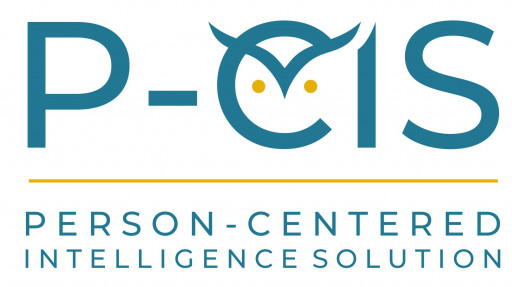
Person-Centered Intelligence Solution
P-CIS is the first platform of its kind to effectively map progress toward well-being for people participating in person-centered care systems.
FOLSOM, Calif. - March 15, 2021 - (Newswire.com)
Mental health technology startup Opeeka announced this week the release of their Person-Centered Intelligence Solution (P-CIS) to help remove technology barriers from the system of care to support collaboration and coordination of care for multi-system served children/youth and families.
Opeeka's P-CIS is a HIPAA compliant, multi-agency solution that allows care agencies to coordinate outcomes over time, from an initial screen to post-care satisfaction surveys. Assessments are at the heart of every care system, helping to identify eligibility, level of care, rate of reimbursement, cultural preferences, level of need, areas of strength, functioning, past experiences, diagnosis, progress, satisfaction and final outcomes. P-CIS converts any type of questionnaire information into meaningful information at the point of care, mapping responses onto story maps and trajectories of resilience and recovery.
"Whether data is collected directly in P-CIS or through electronic records, P-CIS' prudently designed multi-agency allows organizations to judiciously share very specific information about people who are co-served, encouraging teaming, and coordinating efforts for multi-system and cross-county care," said Opeeka Co-Founder Ken Knecht. "P-CIS supports HIPAA compliant multi-tenancy, this means that error-prone and burdensome secure file transfer to county or state authorities will become unnecessary, freeing staff time to support information where it makes the most impact - at the point of care."
Health providers nationwide have worked hard over the last years to implement successful child and family teaming processes, reflecting the evolving science behind evidence-based practice. Yet a practical integrated approach remains to be realized due to technological barriers and siloed organizations.
Current technology barriers result in:
- Duplicate Efforts and Wasted Resources. Duplicate assessments are being collected across agencies where data sharing is not technologically possible.
- Uninformed Practice. Important information which could inform practice never reaches the point of care in time.
- Unsupported Data. Local partners have local needs and may use different versions or altogether different screens/assessments/goals. When there are differences, this creates more barriers to capturing and sharing important information and data.
- Uninformed System. It is impossible to evaluate or monitor care for a whole child/youth and family because each agency in the system captures only one part of the overall well-being and safety of the child/youth and family.
- Unsupported Collaboration. System partners utilize different electronic systems to capture information, screens/assessments/goals on different timelines. They use different words to identify common tasks and practices. There is no universal system to support a collaborative workflow.
Collaboration is possible. One step is to remove the technology barriers.
Technology barriers addressed by P-CIS:
- No Duplication of Efforts. P-CIS fosters collaboration through its Care Circles. In Care Circles, agencies can set up sharing for sets of people and sets of questionnaire types and allow for the redaction by question as necessary. Since P-CIS uses a standardized data model for questionnaires, any type or version of assessment can be shared or unshared at any time. Sharing can happen between any participating partner agencies in Care Circle.
- Informed Practice. Since P-CIS Care Circles support secure sharing of data and P-CIS Application Programming Interface (API) supports secure exchange of data between electronic record systems, information about children's/youth's and families' needs, strengths and circumstances can be available in real time at the point of care. P-CIS can ingest data from departments, agencies, local electronic records and any other standardized data source. In this way, P-CIS will allow every child/youth and family to experience informed practice through a fully supported and integrated practice model.
- Supported Data. P-CIS supports any type of assessment or questionnaire and allows for multiple versions. In this way, local and state agencies can choose the assessments and the versions of assessment that are right to inform local practice. P-CIS standard and questionnaire agnostic system allows for easy calibration of nearly any type of assessment in just a few minutes. So not only does P-CIS support any version of the CANS, but it also supports any version of the Strengths and Difficulties Questionnaire (SDQ), the Pediatric Symptom Checklist (PSC), Wraparound measures and tens of thousands of other questionnaire types, including an agency's own questions. P-CIS also captures youth voice, supported by an Invite to Complete functionality which allows staff to email questionnaires to youth, caregivers, supports and external workers for completion. P-CIS tracks whose voice each response represents.
"Having a platform where data can be exchanged across care providers, while maintaining strict client confidentiality, opens up the possibilities for learning more about the populations being served, including granular information about what they need, what they're getting, and what they're missing," said Dr. Kate Cordell, Chief Scientific Officer, and Co-Founder of Opeeka. "Children/youth and families deserve the best practice and care possible. If agreements can be established between agencies in a system of care, siloed data should not be held prisoner, and technology should not be the enemy of collaboration and coordination of care, but the champion and enabler of it. The P-CIS system was built for just this purpose, and we can now address many of the challenges that currently exist."
Press Contact:
Ken Knecht
Opeeka, Inc.
kknecht@opeeka.com
(866) 673-3521
Related Links
Unifying the System of Care
Person-Centered Intelligence Solution
Press Release Service by Newswire.com
Original Source: Opeeka Launches Person-Centered Intelligence Solution to Enable Coordinated Care Across a System of Care
